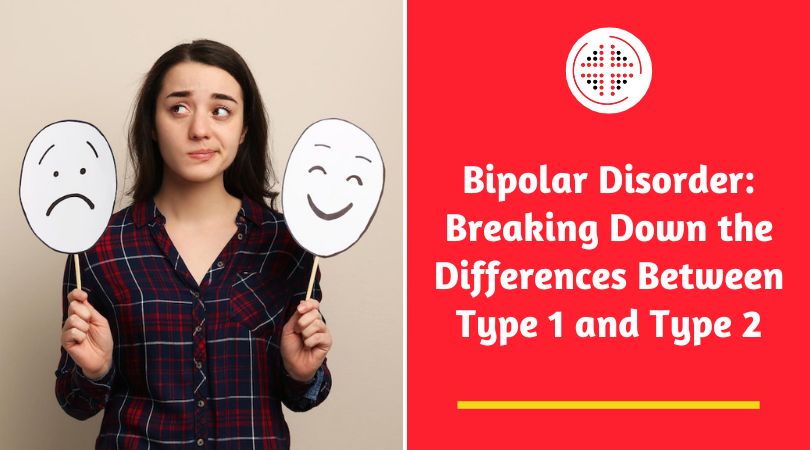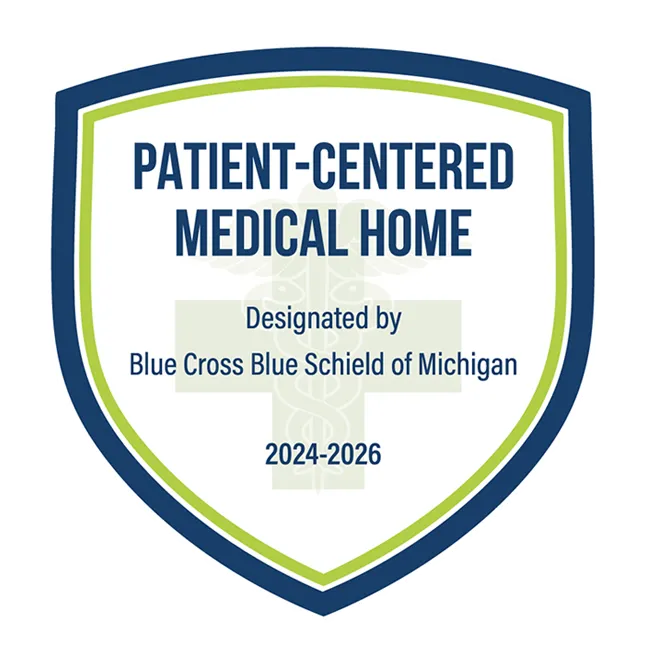


Bipolar disorder is a chronic mental health issue affecting millions worldwide. Type 1 and type 2 are distinct bipolar disorders involving intense depression episodes. What distinguishes these two kinds? How do their symptoms influence people's lives? Recognizing these variations is essential for understanding the subtleties of the ailment and creating appropriate treatment plans. This blog explores the differences between bipolar types 1 and 2 to empower you to make the right choices.
Bipolar disorder is a chronic neurological sickness characterized by severe alterations in mood. It includes mood dynamism, impulsiveness, depression, overwhelming sadness, exhaustion, and loss of interest. Bipolar negatively affects relationships and daily life. Individuals with bipolar disorder require accurate diagnosis and constant therapy for stable and fulfilling lives.
Certain vital factors summarize the difference between bipolar 1 and 2—
Bipolar one is defined by a history of manic episodes, which are intense periods of elevated mood, enthusiasm, and impulsive behavior. Bipolar 2 patients, on the other hand, have hypomanic episodes less in intensity than full-blown mania.
Bipolar one is characterized by severe and incapacitating manic episodes that may disrupt a person's life. On the other hand, bipolar 2 is typically marked by more strong depressive episodes and less severe hypomanic periods.
While hypomanic episodes in bipolar 2 often endure for at least four days, manic episodes in bipolar 1 might last for at least seven days or necessitate emergency hospitalization.
Individuals with bipolar 1 require more intensive treatment and antipsychotic drugs, while Bipolar 2 is often managed with mood stabilizers and psychotherapy.
It takes at least one manic episode to diagnose bipolar 1 disorder. Contrarily, persons with bipolar 2 are diagnosed when they experience at least one severe depressive episode and one hypomanic episode.
Signs of bipolar depression differ from regular depression. Here are six key signs and symptoms of bipolar type 1 and 2 to look out for—
Bipolar depression patients go through extended bouts of sadness, emptiness, or despair. This mental condition could last several days, weeks, or even months.
A noticeable decrease in interest in previously enjoyed activities is common. Hobbies, interactions with others, and routine work could seem taxing and unattractive.
Bipolar depression usually involves impaired cognitive function. People may find it challenging to focus, decide what to do, or recall information, which might hinder their performance.
Bipolar depression patients are more likely to have suicidal thoughts. It's crucial to get expert help in time to avert these thoughts.
There is no known cause of the disorder; however, there are some potential triggers of the ailment—
Some common myths and facts about Bipolar disorder are—
Fact: Bipolar disorder comprises episodes of mania and sadness, not just mood fluctuations.
Fact: Bipolar disorder includes both manic and depressed periods, even though depression is a condition component.
Fact: Individuals with bipolar disorder can yield stability with the right therapy and management.
Fact: Along with medication, psychotherapy is critical to a thorough bipolar disorder treatment program.
Bipolar disorder is diagnosed after thoroughly examining symptoms, medical history, and genealogy. A medical expert evaluates the existence of manic and depressive episodes, the length and frequency of mood swings, and their effects on daily operations.
Here are the most accessible treatment options—
Experience the advantages of MI Express Primary Care in supporting your mental health. Our team of experienced professionals offers convenient access, prompt appointments, and comprehensive support, ensuring personalized treatment is seamlessly integrated into your primary healthcare plan. Contact us to book an appointment.
Anxiety Attacks vs. Panic Attacks: A Comparative Analysis
Understanding the Distinction Between Insomnia and Sleep Apnea
Understanding the Relationship Between Dehydration and High Blood Pressure




